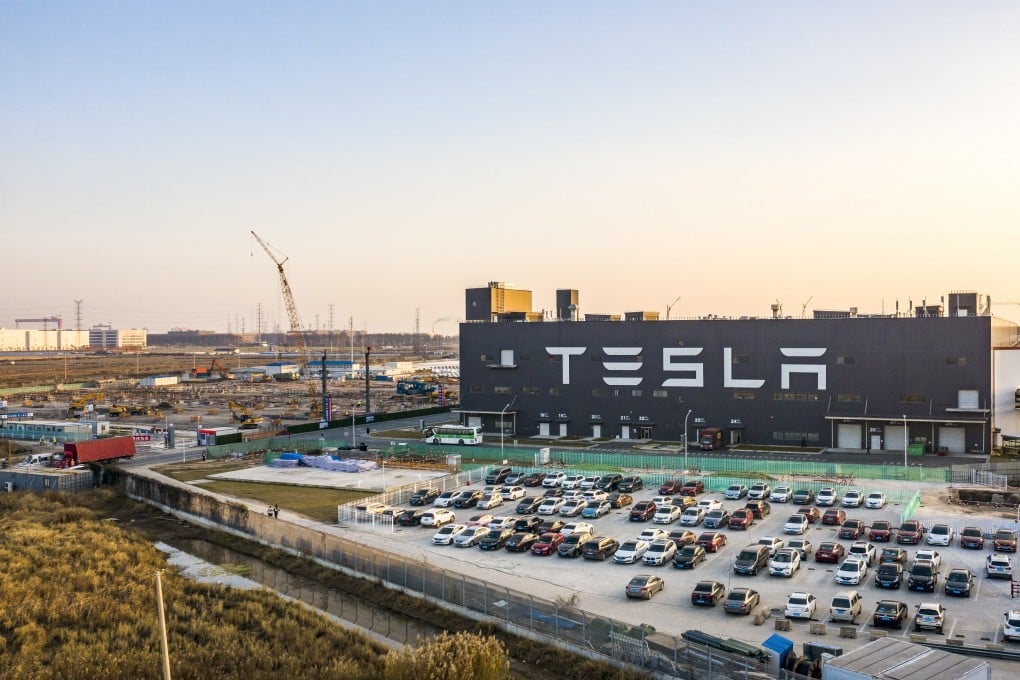Advertisement
Tesla suffers setback in China as backlash over safety, quality of its electric cars sinks sales by 27 per cent
- The decline of nearly 10,000 vehicles in April is a ‘huge setback’, said Gao Shen, an independent analyst in Shanghai
- A protest at the Shanghai Auto Show by the owner of a Model 3 that had crashed sparked a social media storm over quality standards at Tesla’s Gigafactory 3
Reading Time:2 minutes
Why you can trust SCMP
2

Tesla’s sales in mainland China hit a blip last month as the leader in the electric vehicle (EV) field ran foul of angry customers raising concerns about safety and quality.
The US carmaker delivered 25,845 Shanghai-made vehicles in April, 27.2 per cent less than the 35,478 units it sold a month earlier, according to the latest data from the China Passenger Car Association (CPCA). The industry consortium did not break down the sales into the two different models Tesla offers.
“A decline of nearly 10,000 units in sales over just one month is a huge setback for a carmaker,” said Gao Shen, an independent analyst in Shanghai. “But Tesla will maintain its leading position in China’s premium electric vehicle segment for a long time because it has yet to see a powerful rival here.”
Tesla faced a social media backlash from Chinese customers last month over safety and quality issues.
Advertisement
It started on April 19, when a woman in a T-shirt emblazoned with the words “brake malfunction” and a Tesla logo jumped on one of its vehicles at the Shanghai Auto Show, after her Model 3 crashed.
The global EV leader, bowing to pressure from market regulators, said sorry two days later for a delay in resolving the owner’s issue.
Advertisement
It has also released the data log of the car, which crashed in February this year in Zhengzhou, the capital of China’s central Henan province, to the woman. According to local media reports, she and Tesla had been arguing for months about whether the car in question was speeding and if its brakes failed.
Her protest, which came just weeks after Tesla executives were grilled by senior officials about the quality of its Model 3 cars, sparked a wave of angry social media posts from other owners raising their own concerns. The company denies claims that the safety or quality of its vehicles has been compromised in any way.
Advertisement
Select Voice
Select Speed
1.00x